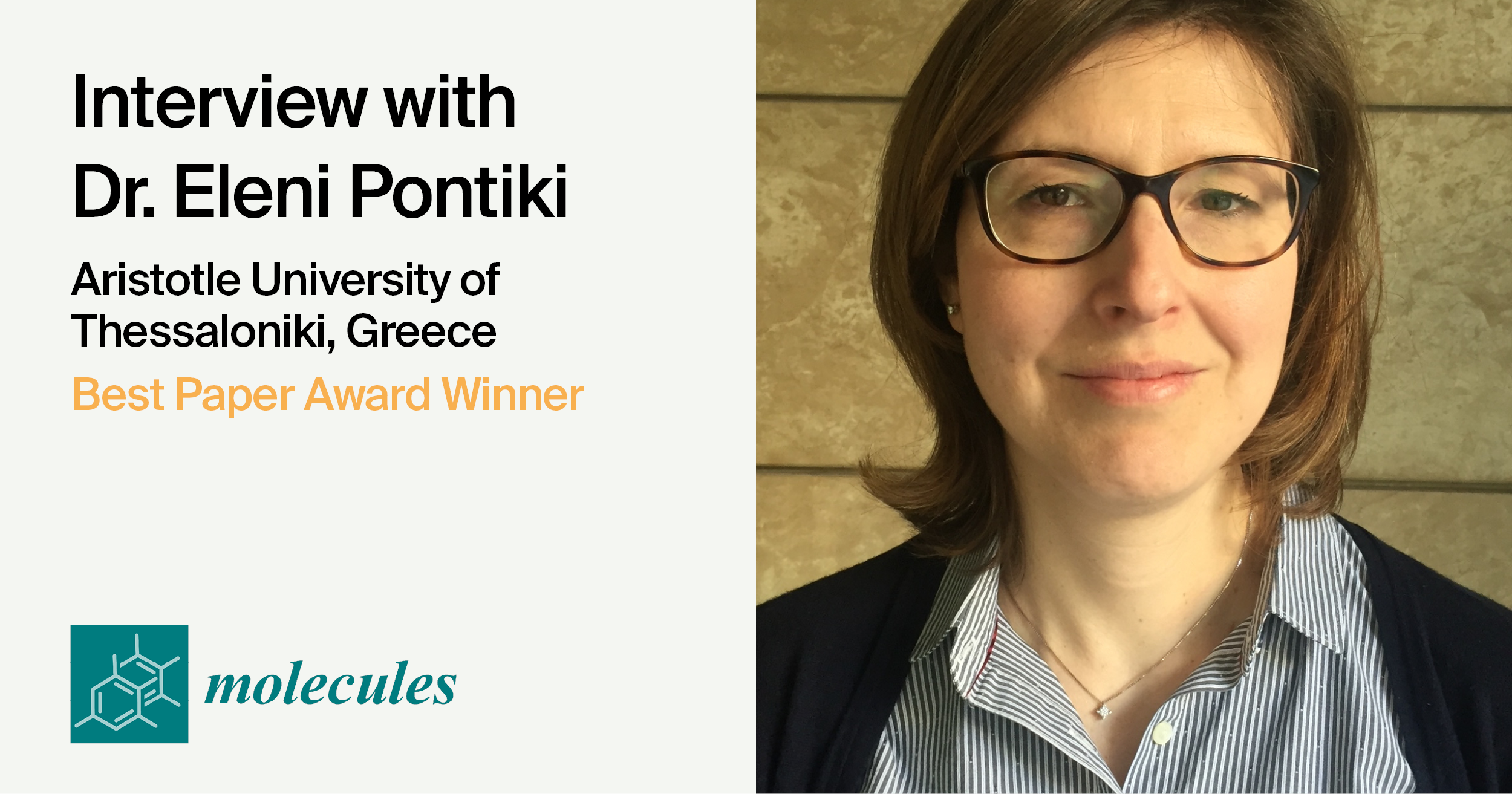
Journal Menu
► ▼ Journal Menu-
- Molecules Home
- Aims & Scope
- Editorial Board
- Reviewer Board
- Topical Advisory Panel
- Instructions for Authors
- Special Issues
- Topics
- Sections & Collections
- Article Processing Charge
- Indexing & Archiving
- Editor’s Choice Articles
- Most Cited & Viewed
- Journal Statistics
- Journal History
- Journal Awards
- Society Collaborations
- Conferences
- Editorial Office
Journal Browser
► ▼ Journal Browser-
arrow_forward_ios
Forthcoming issue
arrow_forward_ios Current issue - Vol. 30 (2025)
- Vol. 29 (2024)
- Vol. 28 (2023)
- Vol. 27 (2022)
- Vol. 26 (2021)
- Vol. 25 (2020)
- Vol. 24 (2019)
- Vol. 23 (2018)
- Vol. 22 (2017)
- Vol. 21 (2016)
- Vol. 20 (2015)
- Vol. 19 (2014)
- Vol. 18 (2013)
- Vol. 17 (2012)
- Vol. 16 (2011)
- Vol. 15 (2010)
- Vol. 14 (2009)
- Vol. 13 (2008)
- Vol. 12 (2007)
- Vol. 11 (2006)
- Vol. 10 (2005)
- Vol. 9 (2004)
- Vol. 8 (2003)
- Vol. 7 (2002)
- Vol. 6 (2001)
- Vol. 5 (2000)
- Vol. 4 (1999)
- Vol. 3 (1998)
- Vol. 2 (1997)
- Volumes not published by MDPI
Need Help?
Announcements
22 September 2025
Interview with Dr. Eleni Pontiki—Winner of the Molecules Best Paper Award

We are delighted to invite the winner of the Molecules 2023 Best Paper Award, Dr. Eleni Pontiki, to discuss her article, “Novel Pyrimidine Derivatives as Antioxidant and Anticancer Agents: Design, Synthesis and Molecular Modeling Studies”. The paper was published in Molecules (ISSN: 1420-3049) and has received a significant amount of positive feedback from our readers. We hope you enjoy the interview:
1. Could you tell us a little bit about yourself and your current research?
I am an Associate Professor and Head of the Laboratory of Pharmaceutical Chemistry at the School of Pharmacy at Aristotle University of Thessaloniki. I have a pharmacy degree and am a recipient of a master’s and a PhD in Medicinal Chemistry from the same Institution and a master’s in “Management in Health Care Organizations” from the National School of Public Health in Athens, Greece. My postdoctoral studies were conducted at the Department of Chemistry, University College London, London, United Kingdom, and the Laboratory of Pharmaceutical Chemistry at the School of Pharmacy at Aristotle University of Thessaloniki. I am a recipient of different fellowships and awards. I have published 73 articles in peer-reviewed journals and 4 book chapters. My publicly available contributions have received over 1906 citations (excluding self-citations of all authors) and their h-index = 23. In addition, I have delivered invited presentations and participated in more than 100 national and international conferences.
My current research focuses on the design and synthesis of novel small molecules with potential biological activities. Different kinds of compounds and hybrid molecules are designed, synthesized, and evaluated as antioxidants, anti-inflammatories, and anticancer agents. Additionally, their physicochemical properties were theoretically and experimentally studied. Finally, computational screening and docking studies were performed.
2. Could you please briefly introduce the main content of the winning paper?
The winning paper describes the synthesis of pyrimidine derivatives from the condensation of a suitable α,β-unsaturated ketone with 4-amino-6-hydroxy-2-mercaptopyrimidine monohydrate in glacial acetic acid. The synthesized compounds were characterized spectroscopically and with elemental analysis. The synthesized derivatives were evaluated for their antioxidant (DPPH assay), anti-lipid peroxidation (AAPH), anti-LOX activities, and ability to interact with glutathione. Additionally, the synthesized derivatives were investigated as anticancer agents. Cell viability and cytotoxicity assays were performed with the HaCaT and A549 cell lines using the MTT assay.
3. What do you think the future directions for your research are?
In future research, the perspective is to apply advanced computational tools for the rational design of novel molecules for contemporary diseases, implicating the complex phenomenon of inflammation, eg, Alzheimer’s and Parkinson’s disease, cancer, autoimmune diseases, etc. Moreover, new synthetic methodologies would be applied to biological protocols. By fostering collaborations, different projects will be developed according to the above research interests.
4. As the winner of this award, is there something you want to express or someone you wish to thank most?
As a winner of this award, I would like to express heartfelt gratitude to Emeritus Professor Dr. Dimitra Hadjipavlou-Litina for her invaluable support and guidance throughout these years. Her mentorship has played an invaluable role in my academic and professional career.
5. What appealed to you about the journal that made you want to submit your paper? How was your experience submitting to Molecules?
Molecules is among the leading international, peer-reviewed, open access journals in the field of medicinal chemistry. It was important for me to have fast and open access publication in a peer-reviewed journal with a high impact factor.
Publishing in Molecules is an outstanding experience. There is always support from the managing editors, and the reviewers are properly selected (perfectly matching the research field of each paper), aiming to improve the manuscripts to reach the high-quality standards of the journal.
6. What is your opinion of the open access model of publishing?
Open access provides global access to scientific knowledge for all researchers and students of all countries; moreover, it fosters collaborations between research groups. As for the authors, an open access article provides greater visibility and impact.




